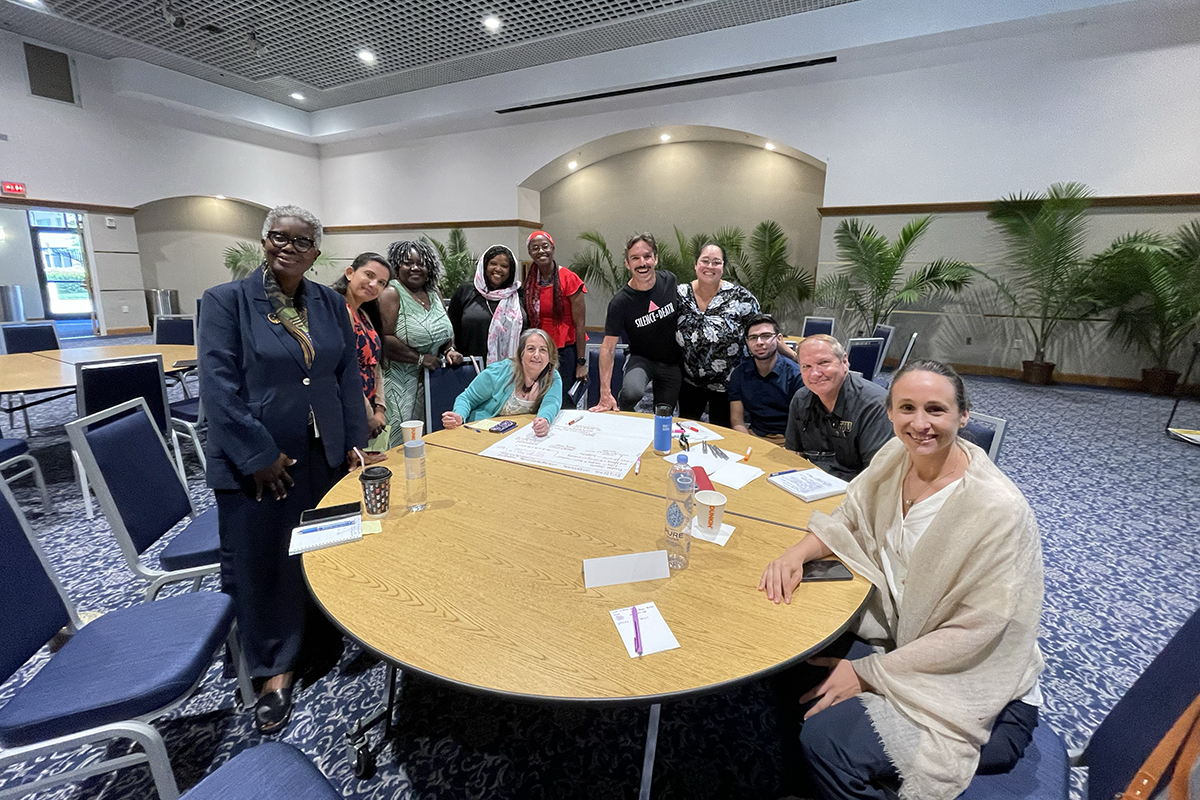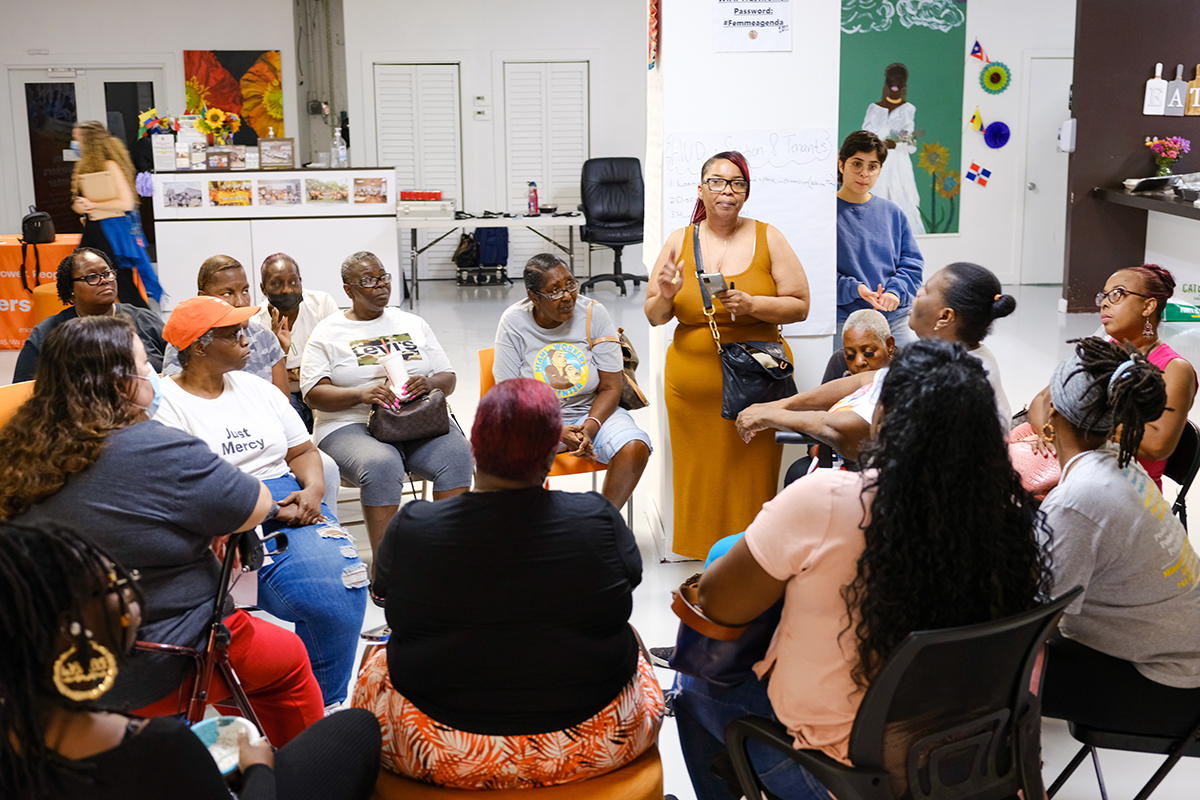About Our Components

Mellon Grant Background
Consistent with The Mellon Foundation’s emphasis on a Collaboratory approach (co- identification, co-design, and co-production) with local stakeholders and community leaders, FIU created the Florida International University Commons for Justice (FIU-CfJ).
The “Commons” serves as a combination of
- an open, safe, and supportive space to articulate and exchange findings, views, perspectives, and solution options; and
- a set of resources for research and teaching available to, and shared with, neighborhoods and the broader community. The FIU Commons for Justice employs its unique Collaboratory method while working with local neighborhoods and community partners. While the particular geographical focus of the project has been on the region’s north-south “spine of distress” (predominantly neighborhoods and communities of color with strong senses of place and history, but also with profound feelings of distrust, neglect, and alienation), the project has transcended its local arena by exchanging with Caribbean Basin communities and a virtual network (the Global Indigenous Forum) that advocate respect and support for Indigenous populations and minorities worldwide.
The FIU Commons for Justice strives to build a research-analysis-awareness-voice-solutions program to identify, illustrate, and address the deep racial and ethnic inequities in pre-event disaster exposures and vulnerabilities and in post-event resilience resources and capacities.
Identifying racial and ethnic inequities in disaster exposures and vulnerabilities


About our Components
The Commons for Justice grant was established with a clear vision in mind—to catalyze positive change and address pressing challenges in our society. The FIU-CfJ formed 11 major components to tackle these issues:
- a research cluster to identify the most pressing risk and resilience problems (including a lack of secure/sustainable livelihoods) in neighborhoods predominantly of color;
- publicly accessible presentations on how differential disaster risk and resilience problems “layer” on―and interact with―more everyday racial and ethnic injustices;
- risk reduction and resilience options for neighborhoods and communities of color;
- a program to collect, preserve, and curate coping stories from those who live in particularly at-risk neighborhoods;
- visiting artists and a journalist able to capture the everyday experiences of living in vulnerable landscapes;
- curricular development of “Histories from Different Perspectives” and an outreach “History Exchange”;
- undergraduate research fellowships;
- predoctoral research fellowships;
- postgraduate research fellowships;
- enrichment and exchange with the FIU-based Global Indigenous Podcast Network; and
- “In-residence” support for local, regional, and/or national experts/activists on racially-based injustices in risk and resilience.
